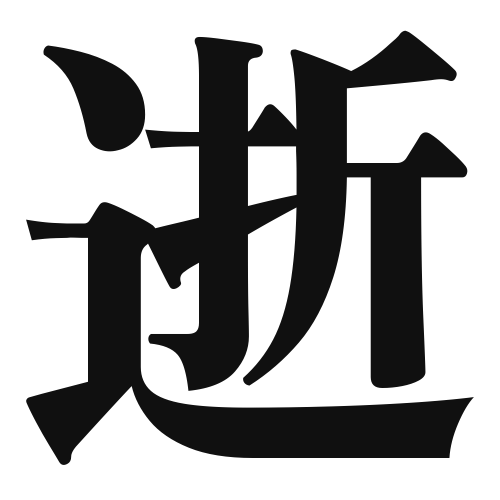1. Overview of Meaning
The kanji “逝” (sei) primarily means “to pass away” or “to die.” It conveys a sense of departure, often used in a respectful context when referring to someone’s death.
2. Formation and Radical
Formation of the Kanji: The kanji “逝” is a phono-semantic compound (形声文字), which means it combines both a phonetic and a semantic component. The left part “辶” (which represents movement) suggests the idea of going or departing, while the right part “西” (meaning west) contributes to the pronunciation.
Radical: The radical of “逝” is “辶,” which is related to movement or walking.
3. Examples of Usage
Common Words and Phrases: “逝去” (shikyū) meaning “to pass away,” and “逝く” (iku) meaning “to go away” or “to die.”
Example Sentence in Daily Conversation: “彼は昨年逝きました。” (Kare wa sakunen ikimashita.) translates to “He passed away last year.”
4. Synonyms and Antonyms
Similar Kanji: “死” (shi) also means “to die,” but it is more direct and less formal than “逝.” While “死” can be used in various contexts, “逝” carries a more respectful connotation.
Antonym: “生” (sei), meaning “to live” or “life,” is the opposite of “逝.”
5. Cultural and Historical Background
Relation to Japanese Culture: The kanji “逝” is often used in funerary contexts and literature, reflecting the Japanese cultural attitude towards death, which emphasizes respect and reverence.
Proverbs and Idioms: One common phrase is “逝く者は忘れられない” (Iku mono wa wasurarenai), meaning “Those who have passed away will not be forgotten,” highlighting the importance of memory and respect for the deceased in Japanese culture.
